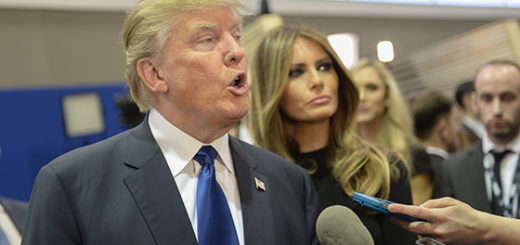It’s not as bad as they say. It’s worse.
The Congressional Budget Office, or CBO, is a non-partisan federal agency within the legislative branch whose job it is to evaluate proposed legislation and to provide reports to the Congress regarding fiscal policy and federal budget projections.
For the purpose of informing public policy, the CBO could just as easily be a chimpanzee locked in a room with a keypad pecking out random numbers in return for banana pellets.
This is to say that to understand CBO projections you need keep only one thing in mind. Whatever the CBO says, things will actually turn out much differently and most likely much worse.
Last week, I told you that the debate regarding the recently passed health care bill should not center on the particulars of its provisions, bad as they are. I told you that I believe that the debate on the new health care law ends on the indisputable fact that we can’t afford it.
Let me further explain.
The thirtieth of this month will mark the 221st anniversary of the swearing in of George Washington as our first president. From that time, until the end of George W. Bush’s term, the United States accumulated a total of $5.8 trillion in debt. That debt represents approximately 40 percent of the gross domestic product (GDP) of the United States economy. Put simply, for every dollar’s worth of goods or services produced in the United States last year, the federal government owes approximately 40 cents. This level of debt as a percentage of GDP is the highest it has been since the end of World War II in 1945. This alarming statistic is largely a reflection on the Bush administration and the Congress that was controlled for most of his administration by his own party.
President Obama can legitimately claim to have inherited a serious economic mess when he took office. But since taking office, he and the Congressional leadership have taken an already unsustainable budget outlook and made it much, much worse.
According to the Congressional Budget Office, if current trends continue, and if the Congress enacts no additional measures resulting in higher structural expenditures, and if there is even a remote chance that CBO forecasters are any better than our banana pellet-eating chimpanzee, by 2020, national debt will stand at $15.0 trillion or nearly 90 percent of GDP. Put simply, that means the United States will be a third world country.
(And remember, whatever CBO forecasts, things always turn out worse.)
Therefore, expanding entitlements when the entitlements that we already have, such as Social Security, Medicare and Medicaid, are already unfunded at dangerous levels, is simply not going to work.
Raising taxes on “the rich” as Democrats are fond of proposing, won’t fix this problem. Raising taxes on everyone to pre-2001 levels, in other words to the levels that prevailed prior to either of the two Bush tax cuts, won’t fix the problem either. No practical level of taxation will solve the problem.
Nor will a magical rejuvenation of the job market and a return to 1990s-era economic growth. While a growing economy can and will work wonders, if it ever happens again in earnest, there is no way the U.S. economy can grow fast enough to generate tax revenues sufficient to fund the current level of spending.
Serious action at the ballot box this November resulting in a change of control in both houses will help, but even that won’t solve the problem.
The only solution lies in our expectations, which are going to change one way or the other. (Obama did promise change, did he not?)
We have devolved as a society to the place that we expect more from the government than we have the economic capacity to pay for. That means we have reached a tipping point and either we continue on our current path to financial Armageddon (and that right soon) or we accept that the federal government’s role is limited to defending the peace, supporting the currency and acting as impartial referee.
Everything else is up to us.
Which is what the Founders intended.
I know which way I’m leaning. What about you?









I know which way I’m leaning Garth. DOWN with Government. They need to get back to their three little task at hand and nothing else. Charity (entitlements)need to go back to the church and charitable groups. We can do this. I know we can.
No income tax. No deductions or credits. A national sales tax on everything, so an individual will have some bit of control on their taxes by their spending choices.
Do away with tax exempt status for churches.
Government limited to providing military, security (police, fire), builds roads and bridges, etc., and not much else. No car company bailouts, no bank bailouts.. if you fail you fail.
If there is no income tax (as someone proposed), why mention “doing away with tax exempt status for churches”? A national sales tax can still wreck the economy if the Federal Government strays from the narrow limits of power as defined by a strict interpretation of the Constitution. As Paul said, the problem is spending too much (buying votes), not a better tax system. Government bureaucracies always have an insatiable appetite for their own growth and protection from accountability.
President Obama can NOT “legitimately claim to have inherited a serious economic mess when he took office” since he voted for the same policies when he was a Senator. In fact, he supported proposals that would have accelerated a “tax, spend, and regulate” Socialist scheme to make us bankrupt even sooner, as he is doing, now! He was ranked as the “most Liberal Senator” in Congress.
I do wonder what a low-tax system would look like if the free market were unleashed and we were able to exploit the vast resources (people intellect, minerals and land) with which this country was so blessed. Our economy (and freedom) would be the envy of the world, once again! How many trillion dollars worth of natural resources (coal, natural gas, and oil) are available in Federal lands (and offshore) that are restricted from exploration and production? True economic freedom would create more disposable income for families, allowing them to be self sufficient: the antidote to creeping Socialism.
All this is nice theory but it will never happen until the nation as a whole is willing to recognize WHY the Socialist (anti-Constitution) “cool aid” we have been slowly drinking for the last 100 years is so dangerous. Until that happens, we will not have the courage to reverse course. There are just too many “fifth column” advocates of Socialism/Marxism that have infected labor unions, churches, schools, universities, government agencies (at all levels), political parties, corporations, and media. The BIG LIE that exploits “envy and covetousness” is their stock and trade, i.e., “I deserve more”. We have been the ill-informed victims of a giant propaganda war to extinguish our liberties. Today, being self-sufficient is scorned and laughed at. As you have implied, the nanny state is killing us.
As the recent events in Congress have fully demonstrated, our Representative Republic is almost DEAD. What can we do to get it back? We ALL need to understand the Constitution and the limits that it places on government. We must defend our fundamental God-given rights that are unalienable. That is the only formula we need. Sustained freedom depends on individual self-sufficiency. It is our duty to expose those that have violated their oath to uphold this wonderful Constitution and drive them out of office with a replacement (citizen representative) that tells the TRUTH. Let the voter beware!
We must shackle Obama and his cohorts in every way we can as soon as we can and every time we can or the country I was born into will be gone. And as Reagan said “There is no place to run to, we are the last stand on earth.”
I wonder if a good place to start the extra-curricular activity might be “fiscal secession”. That is, quit sending funds that Texas collects to Washington. As in fuel taxes, which I understand we get back 94% of what we send up there. If we kept them here we would have 100% and I’m sure we could use it wisely.
I have driven in all the states but Maine, Vermont and Hawaii and with the exception of Washington D. C. ALL the roads are in states. I think we should relive the federal government of all responsibility for highways and bridges. Make live a little easier for them and improve our highways.
What say you?
I’d say you’re choice of words betray your soul. “Shackle” Obama?
I have a simple and easy way to accomplish most of the things we need for the economy and freedom.
1. Lower tax rates by 30 – 50%
this will unleash the economy as it did when Ronald Reagan lowered the highest tax rate from 70% to 37%. Economic growth would occur in very short order.
2. Let our energy companies go to work. Between Alaska and the gulf of Mexico we have access to more than 100 years of energy without the Middle East. Build refineries as we explore.
3. Build nuclear power plants…even Europe recognizes that it is the cleanest and cheapest energy available at this time.
4. Repeal Obama Care. We can find other solutions that don’t burden the economy and bring socialism into our country.
5 Keep the military strong. We are the target of terrorism around the world. Let the military do what they do best…keep us safe.
5. Eliminate several Government agencies that are nothing but a self sustaining Government Bloat.
Do these things and our economy will improve dramatically as will our confidence in our country and our national pride.
Tom Martin